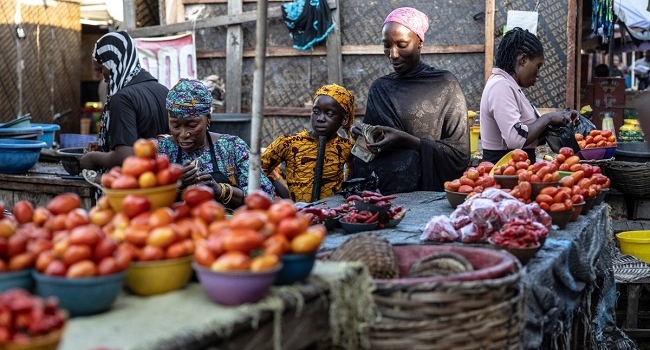ABUJA: Nigeria’s headline inflation rate slowed to 20.12 percent in August 2025, dropping from 21.88 percent in July, according to the National Bureau of Statistics (NBS).
The data released on Monday shows a 1.76 percentage point decline, reflecting easing price pressures across key sectors.
On a month-on-month basis, headline inflation was recorded at 0.74 percent, compared to 1.99 percent in July, signaling a softer pace of price increases.
The food inflation rates a key driver of overall inflation rose by 1.65 percent month-on-month.
The statistics office noted that the August 2025 inflation figure was 12.03 percentage points lower than the rate recorded in August 2024 (32.15 percent).
This decline reflects the impact of recent government reforms aimed at stabilizing the economy, though the NBS stressed the importance of its adjusted base year index.
The Consumer Price Index (CPI) rose to 126.8 in August 2025, reflecting a 0.9-point increase from the preceding month’s 125.9, the report stated.
Despite the decline, Nigerians continue to grapple with high living costs. Economists and stakeholders have urged the Federal Government to implement measures that would cushion the impact of persistent inflation.
In August, World Trade Organization (WTO) Director-General, Ngozi Okonjo-Iweala, commended President Bola Tinubu’s reform agenda, noting that it had contributed to macroeconomic stability.
Read also:
- Why Car Prices Have Skyrocketed in Nigeria: Inflation, Devaluation, Dollar Unification, and Clearing Charges
- IMF Projects Nigeria’s Inflation to Hit 37%, Cuts Growth Outlook
The Consumer Price Index (CPI) rose to 126.8 in August 2025, reflecting a 0.9-point increase from the preceding month’s 125.9, the report stated.
In August, World Trade Organization (WTO) Director-General, Ngozi Okonjo-Iweala, commended President Bola Tinubu’s reform agenda, noting that it had contributed to macroeconomic stability.
However, she stressed the need for inclusive growth and stronger social protections.
We think the President and his team have worked hard to stabilise the economy. You cannot really improve an economy unless it is stable, she said after a meeting with Tinubu in Abuja.
The reforms have been in the right direction. What is needed next is growth. We now need to put in social safety nets so that people who are feeling the pinch of the reforms can also have some support to weather the hardship.
Analysts believe the cooling inflation figures could give policymakers more flexibility in balancing reforms with welfare programs. However, with food costs still elevated, calls for targeted interventions to protect vulnerable households are expected to grow louder.



